Is Georgia worth visiting? Yes!
“Georgia is a country for life” I was told on the first day of my second visit to the country.
I’ve been to Georgia twice now and both times, I’ve been struck by how welcoming the country is, along with the diversity of attractions and activities on offer.
Located in the very east of Eastern Europe, Georgia is a passionate, vivacious country whose geographical position has seen it frequently caught between empires over the centuries.
While its history is fraught with conflicts and occupations, it’s always risen as a culturally rich and unique country, and its retained this spirit to this day.
And they’re one of the world’s most welcoming countries to visitors – inviting any tourists who respect Georgian culture and way of life.
So, is Georgia worth visiting? YES, I strongly think it is!
Here are all of my top reasons to visit Georgia.
This blog post may contain affiliate links. Part of my stay on my second trip to Georgia was hosted by the Georgian Tourist Board. All opinions are my own.
Reasons to visit Georgia
There are so many wonderful reasons to visit Georgia – it pretty much delivers for anything! Head here for nature, culture, gastronomy…. the list goes on!
1. An effortlessly cool capital city
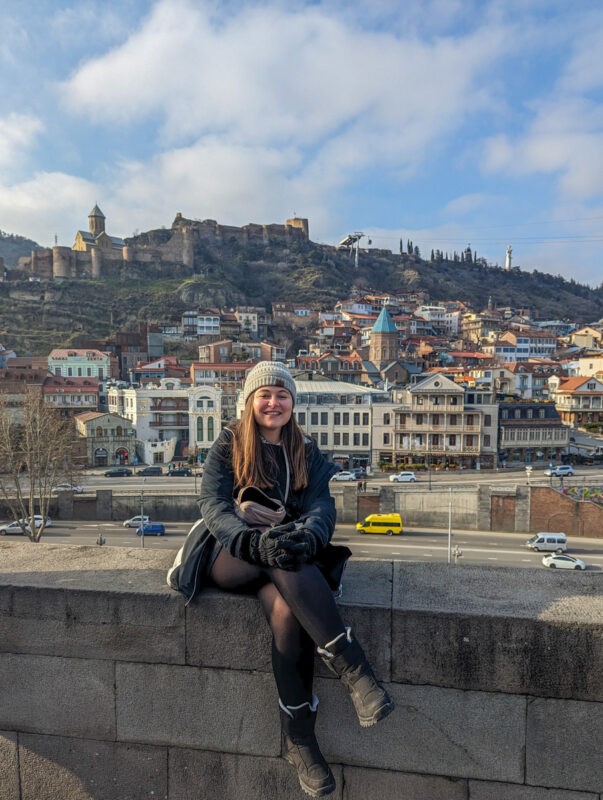
Move over, Budapest – there’s a new hip capital on the European scene.
In reality, avid travellers have been talking about Tbilisi for years now – its tourist scene was buzzing from 2016-2019, but then Covid closures and geopolitical situations hampered the industry’s growth.
But today, Tbilisi is safe and thriving!
There’s a palpable atmosphere in Tbilisi that’s difficult to put your finger on.
Whether you’re strolling through the historic old town, hiking on the hills around the city, drinking one too many glasses of Georgian wine at a supra or gorging on khinkali at a renovated restaurant, Tbilisi buzzes and entices.
Some of the top things to do in Tbilisi include:
- A walking tour through the Old Town (fun fact: this is how I met my partner!)
- Dip into the sulfur baths
- Take a cable car to the Mother of Georgia monument
- On the otherside, take the funicular to Mtsatsminda amusement park (you can walk to Mother of Georgia from here)
- Pick one of the thousands of incredible restaurants
- Check out the craft beer scene
- Discover wine at the Tbilisi Wine Museum – and have a glass in any of the local bars
- Check out the other museums (National Museum of Georgia and Museum of Tbilisi)
- Visit the Chronicles of Georgia monument
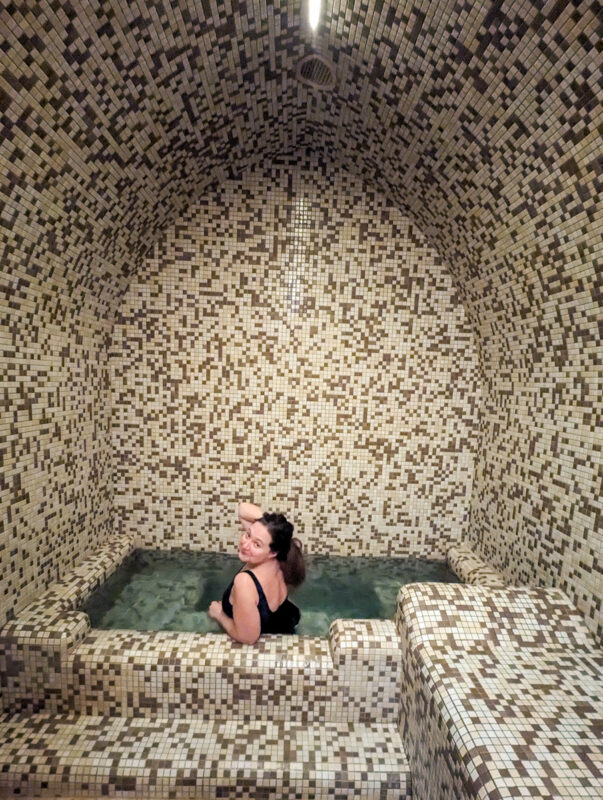
While there are plenty of attractions, do factor in some time to just be in Tbilisi.
It’s one of those cities where the best days can be spent just walking around, taking in the atmosphere, and perhaps stopping off for wine and khinkali when you need refreshment!
2. Incredible nature
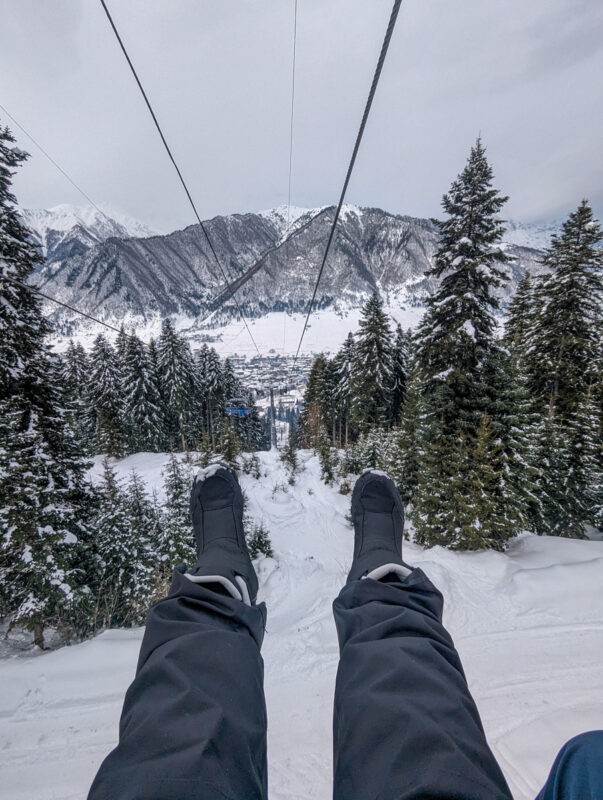
Tbilisi certainly makes a fantastic base in Georgia, but before long, nature beckons!
Over 33% of the country sits in the mountains, cumulating in peaks of up to 5,000 metres altitude.
From the capital, you can visit Kazbegi or Gudauri; Kazbegi is a popular day trip although I’d recommend staying for a couple of nights if possible (Rooms Hotel Kazbegi is high on my bucket list), whereas Gudauri is Georgia’s premier ski destination.
Fancy something a little more remote?
Svaneti sits in northwestern Georgia and is home to its highest mountains. The drive here is hair-raising, to say the least (particularly in winter), but once you arrive you’ll be greeted with a unique culture and history, deserted ski slopes and abundant hiking trails.
Georgia also sits on the Black Sea, a body of water loved by wild swimmers thanks to its warm waters for most of the year. Adjara, the province that Batumi is located in, is renowned for both beaches and mountains – you don’t need to choose between the two!
3. Skiing in winter (and hiking in summer)
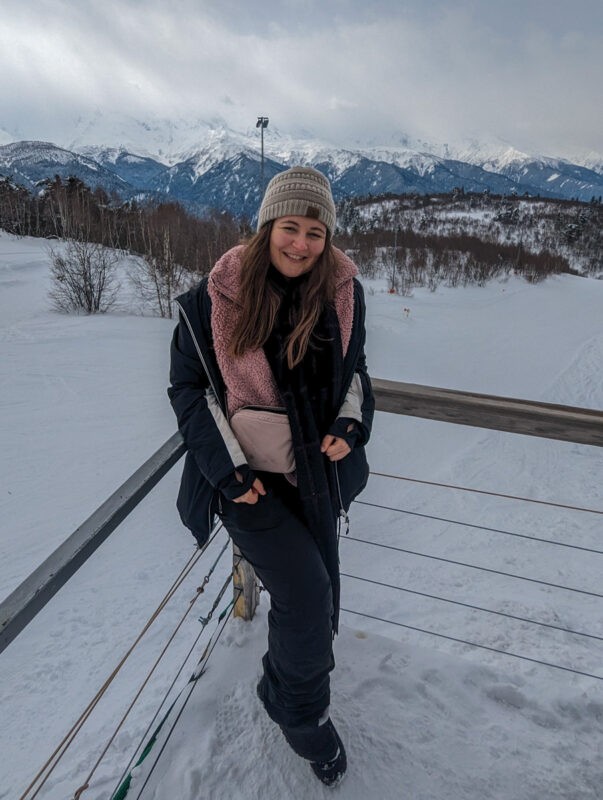
What does a plethora of mountains mean? Skiing and hiking is second to none!
- Gudari is the premier ski destination in Georgia. It’s less than a three-hour drive from the capital and offers budget-friendly ski breaks for all levels.
- Mestia is much more challenging to reach, and the network of slopes isn’t quite as extensive, but prices are very affordable and the slopes can be all but deserted. (I’d generally recommend Mestia as a ski and culture break, but do be aware that the road to the town can be very hazardous and closes frequently).
4. VERY underrated food scene
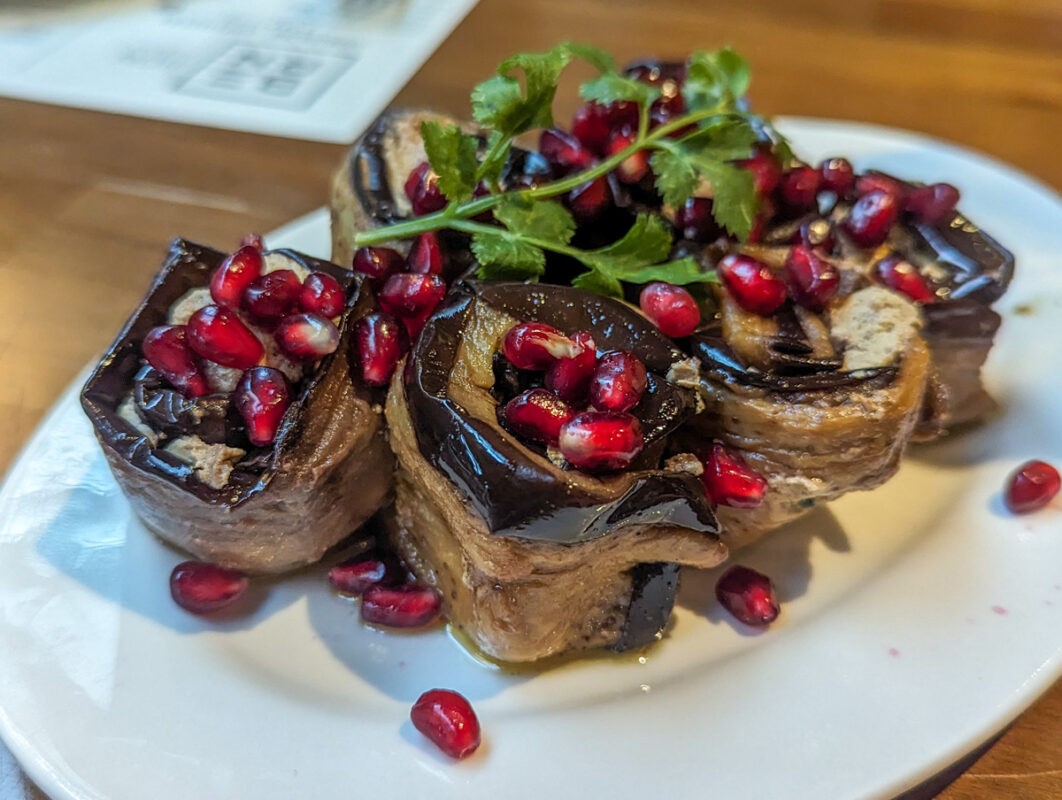


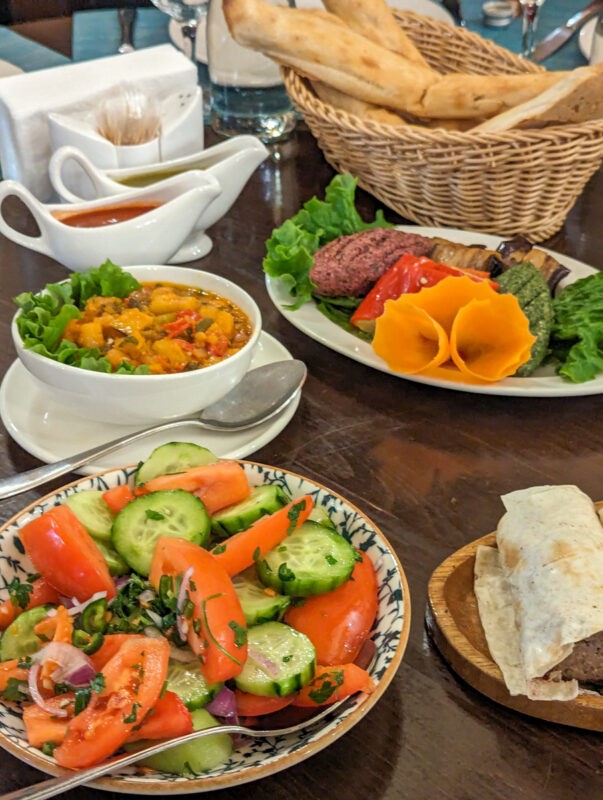
Georgian food is criminally underrated; I’m constantly baffled how, in the UK, we only have a handful of Georgian restaurants in London and virtually none outside of the capital!
Georgian food is hearty, rich and decadent. Think salads with a rich walnut paste, warming bean stew (lobio), tantalizingly cheesy khachapuri (bread) and khinkali – enormous dumplings that’ll make any food connoisseur’s mouth water.
It’s not just about the taste in Georgia, however. The eating experience is among the best in the world. We attended a few Georgian supras; meals where food is laid out on the table to share, and a tamada, or toastmaster, makes passionate speeches and toasts about life, love, happiness, hospitality and anything else they wish to share!
Dining at restaurants is a more casual affair, but it’s still usual to order a few plates for the table to share. And it won’t break the bank, with most dishes costing 3-5 euros.
5. The world’s oldest wine culture

What goes well with excellent food? Excellent wine, of course!
I’ve never met a country that loves wine as much as Georgia.
In fact, on my first trip to the country, I arrived at a guesthouse in Tbilisi after a night train from Baku and was told that they’d make some breakfast for me.
“Just a little, please”, I requested. Half an hour later, I heard a knock on my door. I went out the to dining area and found a table groaning with food. Thinking it was a buffet, I asked for a plate. “It’s all for you!” I was told.
I sat down and tried to make a dent in the food. Then, the owner of the guesthouse walked over, glass of wine in hand, and presented it to me. “It’s from my vineyard,” he told me. It was 8:30 am!
Wine for breakfast is certainly not uncommon in Georgia, but it’s enjoyed throughout the day as well.
Georgia’s status as the birthplace of the world’s oldest wine culture is supported by archaeological discoveries and traditions that span over 8,000 years.
The earliest evidence of wine production, dating back to 6000-5800 BC, was found in the South Caucasus region of modern-day Georgia, where ancient wine residue was discovered in clay jars.
This region’s ancient technique of qvevri winemaking which is recognized by UNESCO as an Intangible Cultural Heritage of Humanity, involves fermenting and storing wine in large earthenware vessels buried underground – this method that has been a cornerstone of Georgian culture for millennia.
Nowadays, seemingly half the population of Georgia has their own boutique vineyard. We were in a wine bar in Batumi, asked for a wine tasting and was invited to meet the winemaker of a particular wine, who’d just dropped in to share his recently made batch!
We were also in Tskaltubo, and after interviewing a man there (my partner’s a journalist), he presented us with a bottle of his handmade wine in a plastic bottle!
Wine’s everywhere in Georgia, but you can appreciate it thoroughly by going on a Georgian wine tour, like this one.
6. Millennia of history
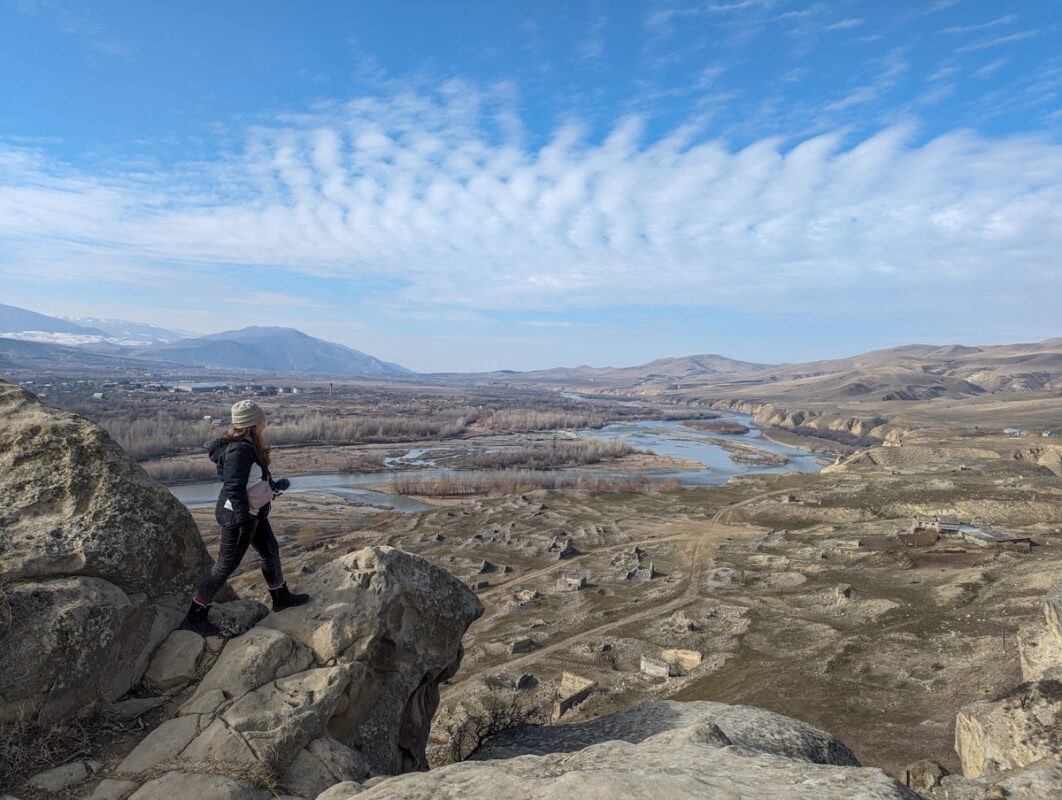
The history of Georgia is mind-boggling.
Some of its ruins were among the earliest found outside Africa, and it’s believed to be the European cradle of civilisation.
More accessible ruins include Uplistsikhe (I say “ruins” but they’re remarkably well-preserved), while the city of Mtskheta has been populated by humans since the 2nd millennium BC – and it’s still lived in and visited today.
Tbilisi’s a baby really, having only been populated since the 5th century AD, but its history is still palpable as you explore the pulsating old town.
Georgia was one of the first countries to adopt Christianity, and its churches throughout the country exude religious history.
But because of the country’s position at the crossroads of Europe and Asia, it’s had a mix of influences from its surrounding nations.
In striking distance are Russia, Turkey and Iran; historically huge empires that left their mark on Georgia. The country was also on the Silk Road, which stretched to Xi’an in China.
Georgia’s modern history caused it to be a part of the Russian Empire and then the USSR – it gained independence in 1991 and has since been developing to become a modern, tourist-friendly destination.
7. Incredible people with a passion for their country
Largely due to Georgia’s struggle for independence throughout its history, locals in the country have a real passion for their nation.
I felt this in the supras, where we’d hear anecdotes about Georgian identity and culture through toasts.
And, in everyday conversations in Georgia, you’ll hear snippets of pride about the nation, whether that be through its food, language, wine, nature or attractions. This also translates to excellent hospitality – locals want to ensure that tourists love the country as much as they do!
Generally, I’ve always found Georgian people to be exceptionally kind and warm.
For example, on my last day in Tbilisi, I had to visit the pharmacy and was a little stressed. I didn’t share a common language with the lady behind the counter, but a local lady who spoke excellent English spent 10 minutes helping me. This is by no means uncommon in Georgia, but it reminded me just how sincere the people are!
8. Very welcoming to travellers

Georgia welcomes travellers with open arms.
The country’s seen a huge increase in tourism in the last 20 years, but they’re still somewhat of a lesser-known secret. They’re very keen to boost their tourist industry and nearly everyone from hotel staff to passersby on the street are helpful and welcoming.
The level of spoken English is very high in cities, with most people under 40 having a good command of the language (Russian is spoken less and less, even in the older generation).
Tourist infrastructure is excellent in urban areas, with everything from swanky hotels like the Raddison Blu in Tbilisi and Rooms (a Georgian brand) in Batumi to well-appointed hostels. In rural areas, infrastructure’s not as modern, but there are plenty of local guesthouses serving delicious traditional food!
9. Very safe
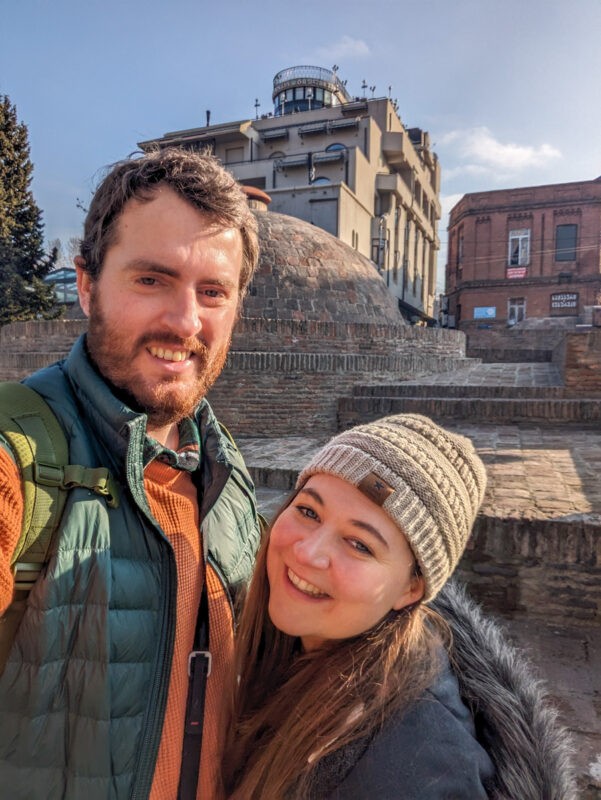
Georgia is also a very safe country.
Tbilisi has been rated among the safest cities in Europe – way, way ahead of cities like London or Paris. I’ve always felt very safe here, including as a solo female traveller.
The only issue I encountered in Tbilisi was an attempted scam on Rustaveli Street, where I didn’t get the real price for a juice and after it was made, was asked for 50 GEL (€17.50!). But street crime and even pickpocketing are very unusual (although do make sure that your valuables are safe).
The rest of the country is very safe as well – the only issues I had were with driving and avalanches! Be careful on mountainous roads during bad weather (this is how we ended up stuck between avalanches!) and make sure that you wear a seatbelt when in a vehicle.
The country is hoping to join the EU and NATO in the future, which will strengthen it geopolitically.
10. It’s a country that’s developing fast
Georgia is nowadays a modern, high-tech country that’s continuing to develop and prosper.
In the cities, WiFi speeds are strong, Bolt taxis arrive in a matter of minutes and contactless payment is accepted in most places!
The tourist infrastructure is only improving, making Georgia an increasingly welcoming destination for tourists around the world!
Considerations for visiting Georgia
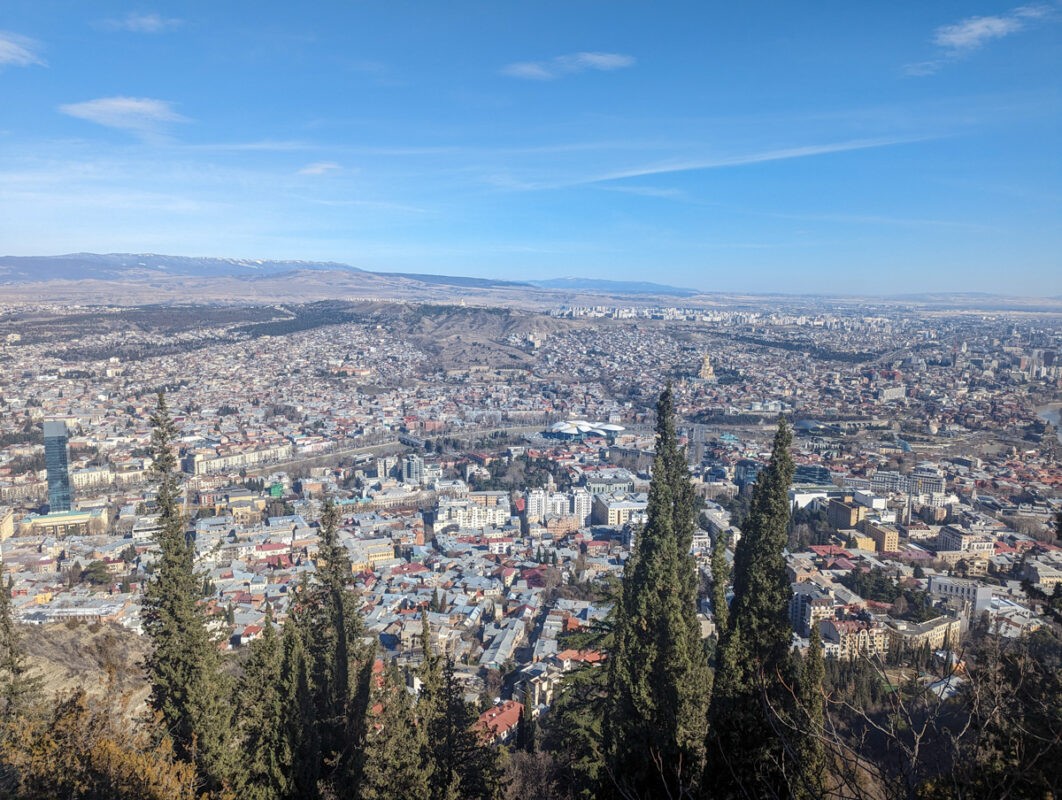
While I think that Georgia is definitely a country that’s worth your time, like all countries, there are a few things to consider before planning a trip there.
A few geopolitical situations (but it’s not as much of an issue as some people think)
I definitely wouldn’t let this put me off going to Georgia, as my recent trip there proved to me that things are stable at the moment, and that’s unlikely to change any time soon.
But, it’s important to be aware that there are tensions between Georgia and Russia; Russia occupies the regions of Abkhazia and South Ossetia in Georgia, and this understandably causes quite a lot of friction in Tbilisi and around the country.
I’d recommend not speaking Russian (on my first visit in 2019 I spoke a little Russian, as I’d learnt some when travelling in Central Asia, but didn’t on my trip in 2024) and if there are any tensions between Georgian and Russian people (this sometimes happens in bars in Tbilisi), staying clear of it.
But generally, this shouldn’t affect travellers to the country.
LGBTQ+ travellers
One of the only things I dislike about Georgia is it’s unfortunately not the most welcoming country for LGBTQ+ travellers. This is largely due to it being a conservative, Orthodox Christian country.
As a straight woman, I can’t talk about this too much myself, but I know that some attitudes in the country are quite backward when it comes to LGBTQ+ acceptance – although anti-discrimination laws are in place and plenty of same-sex couples holiday in the country without issues.
If you’re a gay traveller, I’d recommend checking out Nomadic Boys’ article (who always post extremely comprehensive gay travel guides) for some first-person information.
Winter travel can be difficult
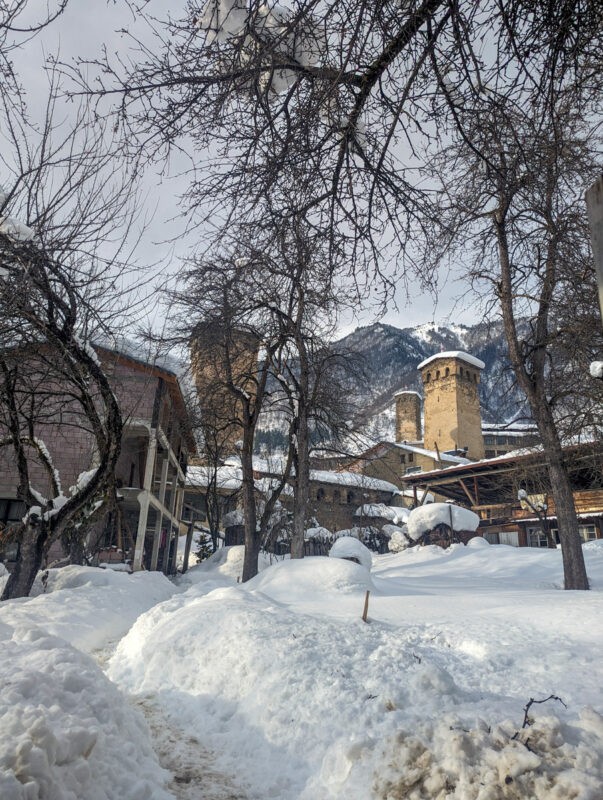
In the winter months, you can explore lower areas like Batumi, Tbilisi and Kutaisi without a problem. The weather can be chilly and we had lots of rain in Batumi, but Tbilisi was lovely and sunny – and on our last day, temperatures reached up to 16C in February!
But do be mindful if you’re heading up to the mountains in the winter. Our journey to Svaneti coincided with the worst storms Georgia had had in 20 years, and we were stuck between avalanches on a hair-raising mountainous road…
We were unlucky with the weather, but I’d definitely recommend, if you’re going to the mountains, to be aware of the conditions before you head out and leave an extra couple of days on either side of your trip in case the conditions aren’t suitable for driving.
So, is Georgia worth visiting?
Yes, Georgia is worth visiting!
Georgia honestly has something for everyone. Rugged mountains, glorious Black Sea beaches, mouthwatering food and wine and passionate culture – there are many reasons to visit this Eastern European nation.
With London to Tbilisi flights scheduled to restart in May, it’s becoming easier to visit Georgia – just get here quickly, before the rest of the world wakes up to what an incredible tourist destination it is!
